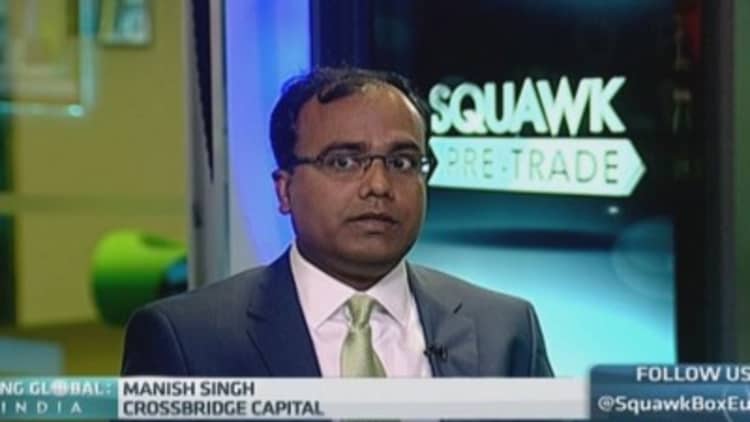Indian voters put Narendra Modi into office as prime minister three months ago as the former regional governor ran on an agenda of tackling inflation, taxes and rampant corruption.
Ninety days, Modi has made some unpopular decisions, such as approving diesel price hikes and ratcheting up the cost of railway tickets. But how much real change has he brought overall to the world's largest democracy?
Investment bank BNP Paribas India outlined a number of notable changes made by the government so far under Modi, including:
- The percentage of foreign direct investment allowed in insurance firms was raised from 26 percent to 49 percent, subject to parliamentary approval
- Passenger fare and rail freight rate hikes
- Continuing gradual diesel deregulation—according to Amit Shah of BNP Paribas, the diesel subsidy is very close to being wiped out altogether
- The formalization of rules for long-term infrastructure bonds
- Hiking foreign direct investment limits in defense firms (from 26 percent to 49 percent) and railways (up to 100 percent)
- Simplifying environmental and forest clearance rules
- Controlling inflation by releasing food and grain stocks
- Labor law reforms, mainly relating to procedural changes to statutory filings and labor inspections
He has thus created a culture of meritocracy and transparency where earlier a culture of bonhomie and favor-seeking existed.Suhel Sethmanaging partner, Counselage India
John Kriley, international investment analyst at S&P Capital IQ, said Modi needs to enact further reforms while he has early momentum, especially with regard to regulating the retail industry. Kriley characterized Modi's work so far as "not impressive, but promising."
"He [Modi] established his credentials for reform in the state of Gujarat and he has pledged to do more for the country as a whole, but what he plans on doing remains to be seen," noted Kriley.

In addition to the regulatory changes Modi has made, investors have applauded him for bringing about a cultural shift, introducing a certain level of work ethic back to the country, especially the capital New Delhi.
Bureaucrats on the ground in India told CNBC that they're seeing more top-level executives showing up to work early and spending less time at the golf course.
"He [Modi] has thus created a culture of meritocracy and transparency where earlier a culture of bonhomie and favor-seeking existed," said Suhel Seth, managing partner at Counselage India, a brand marketing consultancy.
Read MoreNew sanctions? Russia may ban Western car imports
Several India watchers note Modi's no-nonsense leadership style is what helped the state of Gujurat become so successful, but it ignited a level of fear in those who worked for Modi.
"Modi has sent out a strong signal that there will no longer be a culture of 'friends' doing business together at the expense of governance," noted Seth.
—By CNBC's Seema Mody


